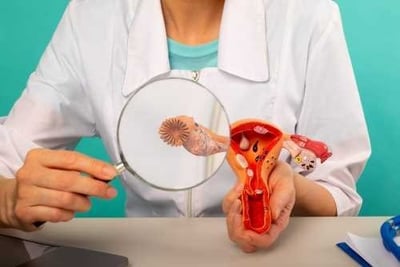
CHANCES: Studying the Connection Between Chemotherapy Exposure and Secondary Cancers of the Blood in Ovarian and other Cancer Survivors
Clinicaltrials.gov identifier:
NCT06295965
Prevention
Study focusing on improving outcomes for ovarian and other cancer survivors
Study Contact Information:
Contact the Swisher Lab by phone 206-221-6648 or email [email protected].
CHANCES: Studying the Connection Between Chemotherapy Exposure and Secondary Cancers of the Blood in Ovarian and other Cancer Survivors
About the Study
Some cancer survivors develop treatment-related blood cancers caused by exposures to anti-cancer therapies (including PARP inhibitors) that impact the bone marrow cells, years after their first cancer diagnosis. The primary goal of the study is to identify risk factors for developing secondary blood cancers and to understand how chemotherapy and exposure influence clonal changes in the blood that may predispose to later development of a blood cancer. By better understanding how secondary blood cancers develop, the CHANCES study aims to provide data that can help clinicians decrease the risk of secondary blood cancers and improve outcomes for ovarian and other cancer survivors. Our data is generated by analyzing questionnaires, blood samples, and clinical information of patients with ovarian cancer or with another cancer type who received a . Results from this study may help other cancer patients avoid these deadly second cancers. Individual results are not provided back to participants, but summaries of our results will be shared with participants as they become available.
What the Study Involves
Participation requires completion of questionnaires and semi-regular blood draws. A baseline questionnaire and blood draw is completed, followed by a repeat questionnaire on interval anti-cancer treatments and blood draws every 6 months for 3 years. These blood draws are done locally and can be coordinated with other routine testing.
Washington
City: Seattle RECRUITING
Facility: Fred Hutch/University of Washington Cancer Consortium
Contact Info:
[email protected]
206-616-8927
Elizabeth Swisher
People 18 years or older, residing in the United States who meet at least one of the following:
- Ovarian, peritoneal, or cancer survivors who have received at least 5 cycles of carboplatin, cisplatin or oxaliplatin chemotherapy
- Other solid tumor diagnosis with clonal hematopoiesis, therapy-related blood cancer or at least 4 months exposure to PARP inhibitors
People who are:
- Under the age of 18
- Have a life expectancy of less than 6 months
- Unable to provide informed consent
- Unable to read or speak English